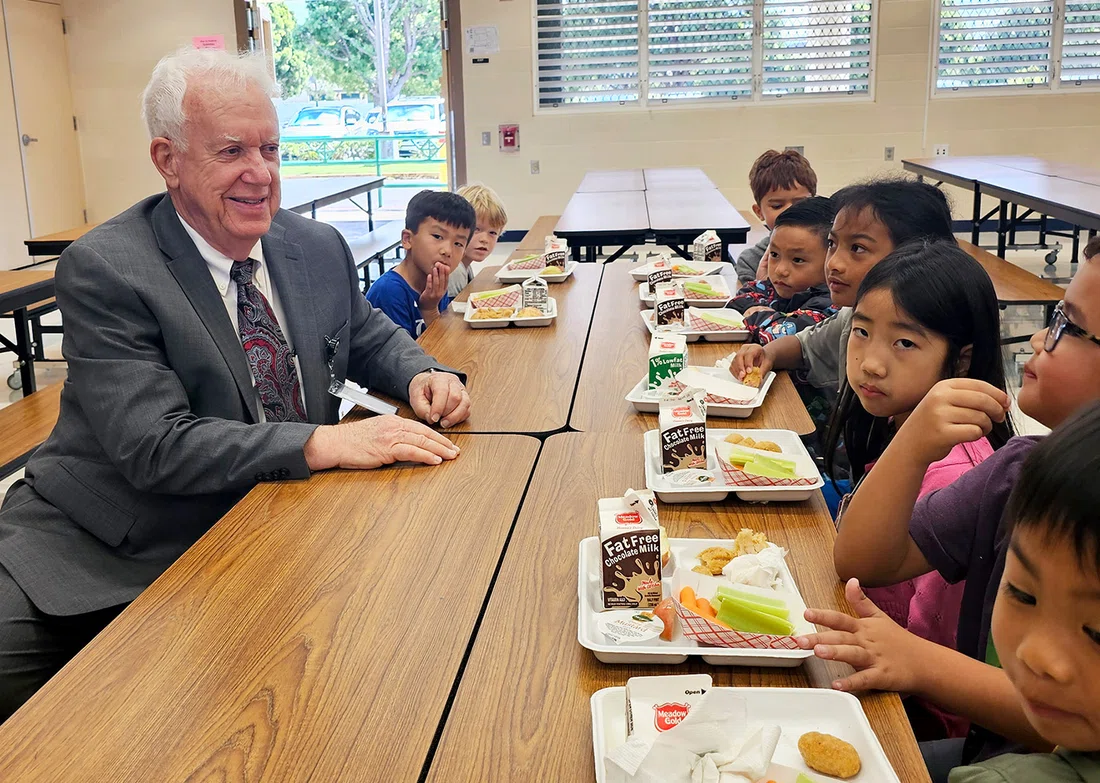
Dr. Clifford Tyler, ACSA’s Retired Administrator of the Year, exemplifies the value of retired educational administrators and the numerous contributions they make to the profession.
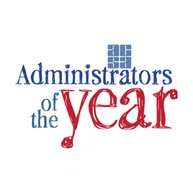
Name: Dr. Clifford E. Tyler
Award: Retired Administrator of the Year
ACSA highlights: Member since 1981; State ACSA Region 8 Retirement Committee Rep, 2019-present; Council of ACSA/CAPEA Leaders, Region 8 CAPEA Rep, 2005-2017; ACSA Leadership Coach; Region 8 Retiree Charter: President, 2018-19; President, Mother-Lode Charter Council, 1989-1990; President, Tulare County Charter Council, 1985-1986.
As a coach, author, professor emeritus and volunteer leader, Dr. Clifford Tyler has continued to make an impact on school leaders at all stages of their careers.
Tyler is ACSA’s 2025 Retired Administrator of the Year, exemplifying the value of retired educational administrators and the numerous contributions they make to the profession.
Following two decades of service as a county and district superintendent in Oregon, Washington, California, and New Hampshire, Tyler became a professor of education at National University’s Sanford College of Education in the Department of Educational Administration and chaired the department from 2004 to 2006. He retired as full-time faculty and became professor emeritus in 2018.
During retirement, Clifford has continued to volunteer his expertise and leadership to numerous community and professional groups. For ACSA, this includes serving on the Council of ACSA/CAPEA Leaders and the Council of Retired Leaders, which he has been a part of since 2019.
As a leader of the Region 8 Retiree Charter, Tyler has represented the interests of retired administrators and shared important updates from the state level. In his role on the charter’s Scholarship Committee, Tyler has helped aspiring administrators attain financial support to reach their career goals. He also serves as a leadership coach in ACSA’s Clear Administrative Credential Program, helping to shape the next generation of school leaders.
Tyler has freely shared his expertise, including as a presenter at ACSA conferences and as a co-author of a book on ethics for school leaders. But it’s his remarkable ability to listen and make others feel heard that has endeared him to so many in the profession and the ACSA community.
“His contributions and educational perspectives to our charter are well received and respected. His active professional experience across the educational field of teaching, supervising, coaching, and presenting are impressive,” said Dr. Maxine E. Amundson, membership chair of the Region 8 Retiree Charter. “We benefit from his participation and his learnings that he shares without reservation.”
What’s your favorite book or quote on leadership?
My favorite quote on leadership comes from Maya Angelou (1969): “I’ve learned that people will forget what you said, people will forget what you did, but people will never forget how you made them feel.” How a leader treats people most likely determines how they feel both about the leader and the organization.
What’s the best advice you’ve been given?
Listen carefully to all points of view from stakeholders before making decisions that are in the best interest of all students.
What’s your best strategy for work-life balance?
My best strategy for time balance is planning and structuring my time to maximize work efficiency on weekdays while enjoying weekend leisure time for my hobbies and family.
My wife and I both taught at the American School in Japan, in Tokyo for a year, lived in a Japanese-style apartment near the school, and traveled to other southeast countries during our vacation breaks from teaching.
What made you want to become a school administrator?
I was eager for the leadership challenge to work collaboratively with school and community stakeholders and realize my vision to facilitate and improve the quality of education.
What’s the biggest challenge you’ve overcome to get where you are?
Making productive use of my time in a variety of rewarding education related activities as a retired school administrator/university professor emeritus.
What is your proudest accomplishment?
Publishing four editions of my co-authored book for publication, “Ethics for Visionary School Leaders: Setting Your Ethical Compass,” which has sold many copies and was used for a graduate course taught at National University on “Visionary Leadership.”
How has ACSA supported you in your career?
Since 1977, when I originally joined ACSA, it has enhanced my leadership skills by attendance and participation in highly relevant conferences and workshops, i.e., Superintendents Symposiums, Leadership Summit conferences, etc. and invaluable networking with administrators throughout the state. In addition, the EdCal publication and Leadership magazine have published well-written, and useful and current articles, along with job opportunities for professional advancement. After retirement, ACSA helps maintain my professional contacts and valuable financial retirement information. The list of benefits is really endless!
The theme for this year’s Leadership Summit is “Lead Loudly: Sharing Stories, Building Bridges.” What does Lead Loudly mean to you?
“Lead Loudly” means clearly communicating a vision of advocacy for diversity, equity and inclusion to the school community despite encountering adversity and challenges from some stakeholders. Building bridges means working with a diverse coalition of school and community stakeholders to develop a strategic plan with common goals and advocacy for success for all students.
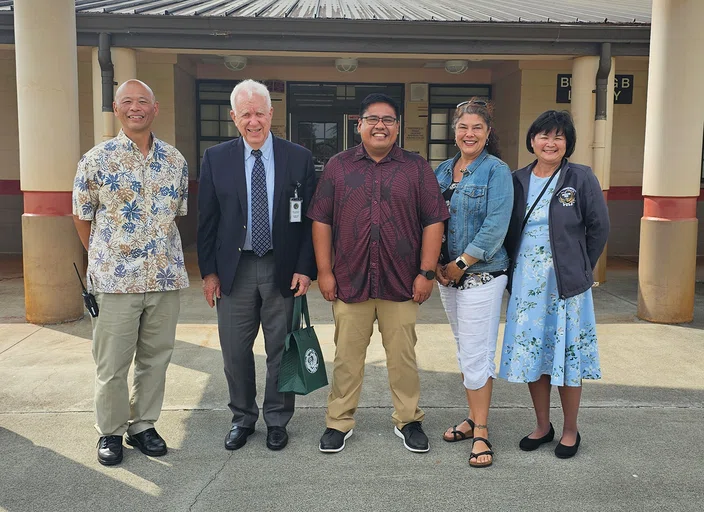
Dr. Clifford Tyler, ACSA’s Retired Administrator of the Year.
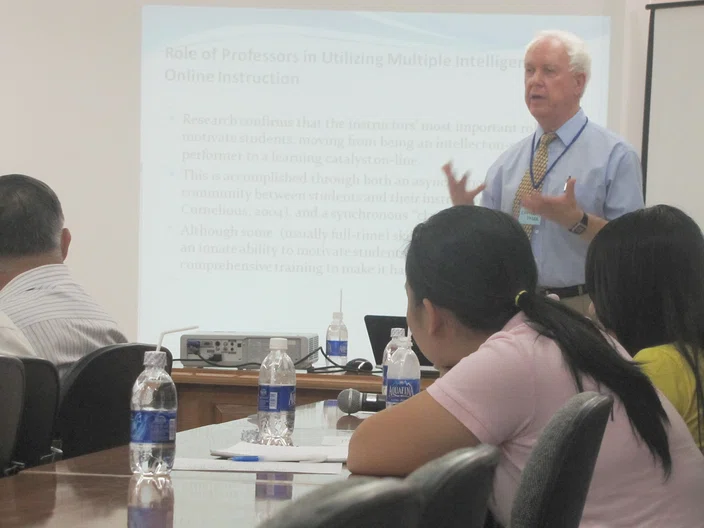
Dr. Clifford Tyler, ACSA’s Retired Administrator of the Year.
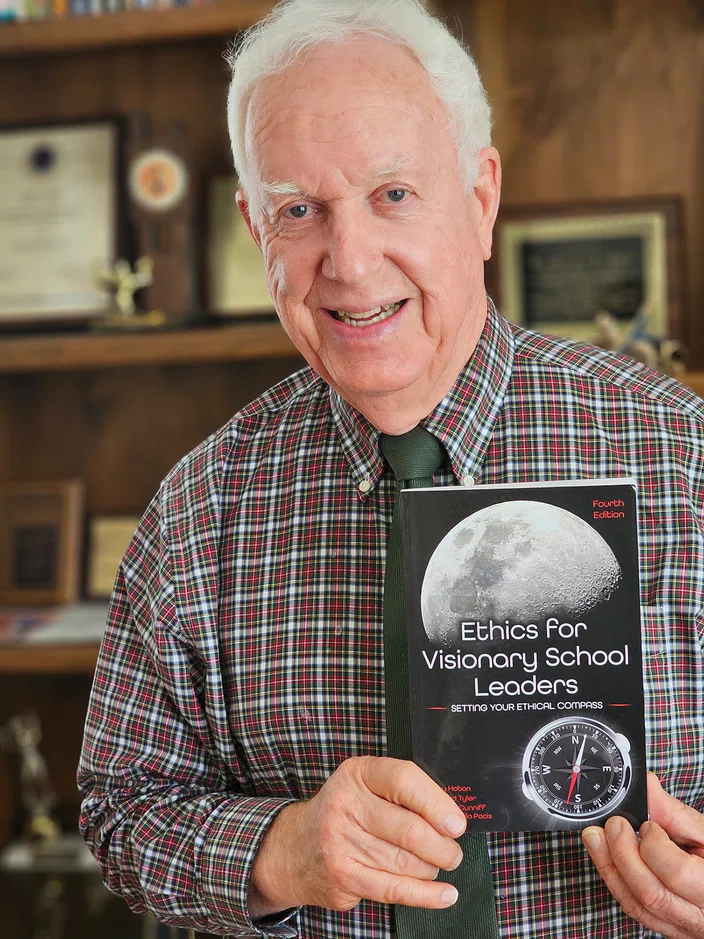
Dr. Clifford Tyler co-authored the book “Ethics for Visionary School Leaders: Setting Your Ethical Compass.”




